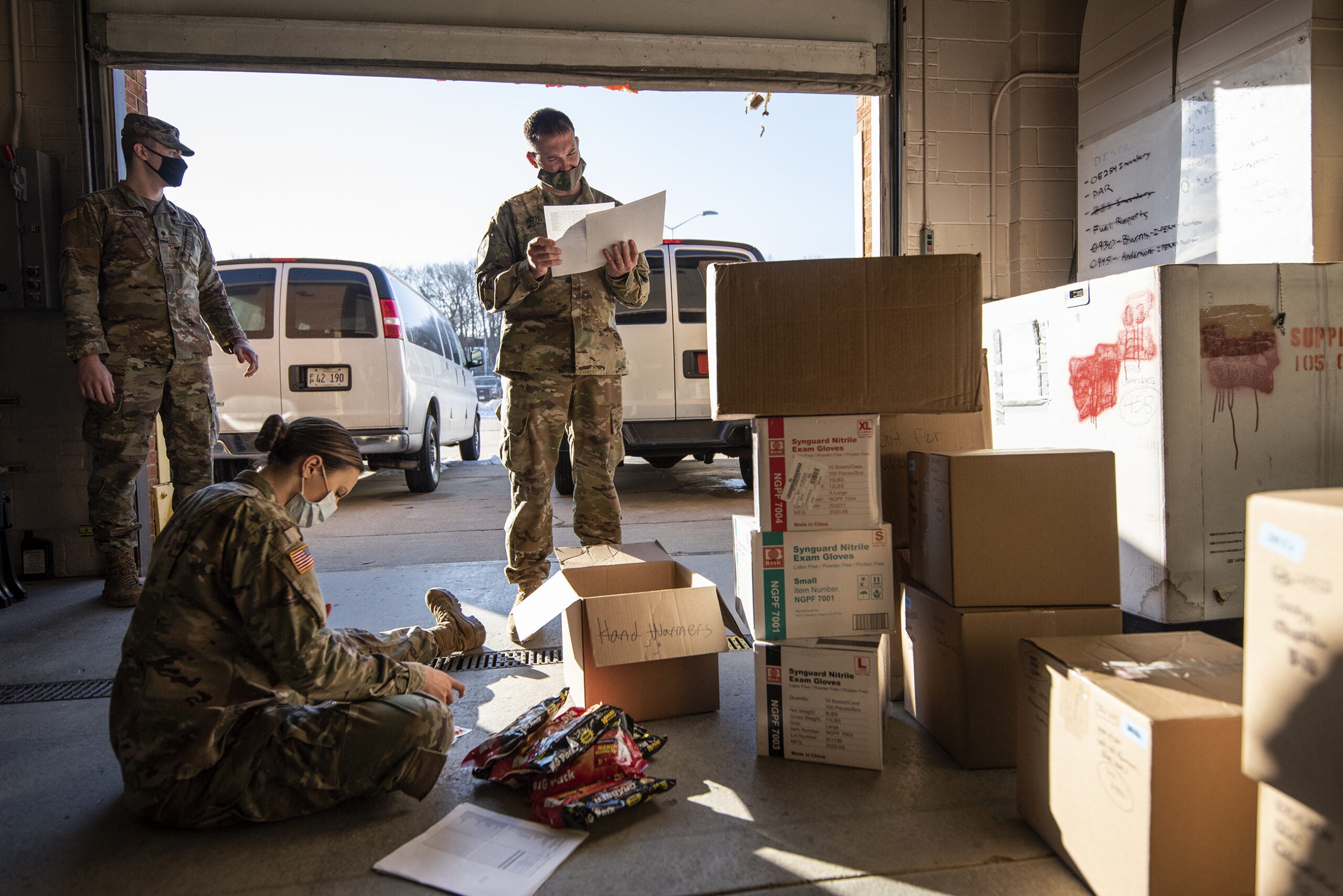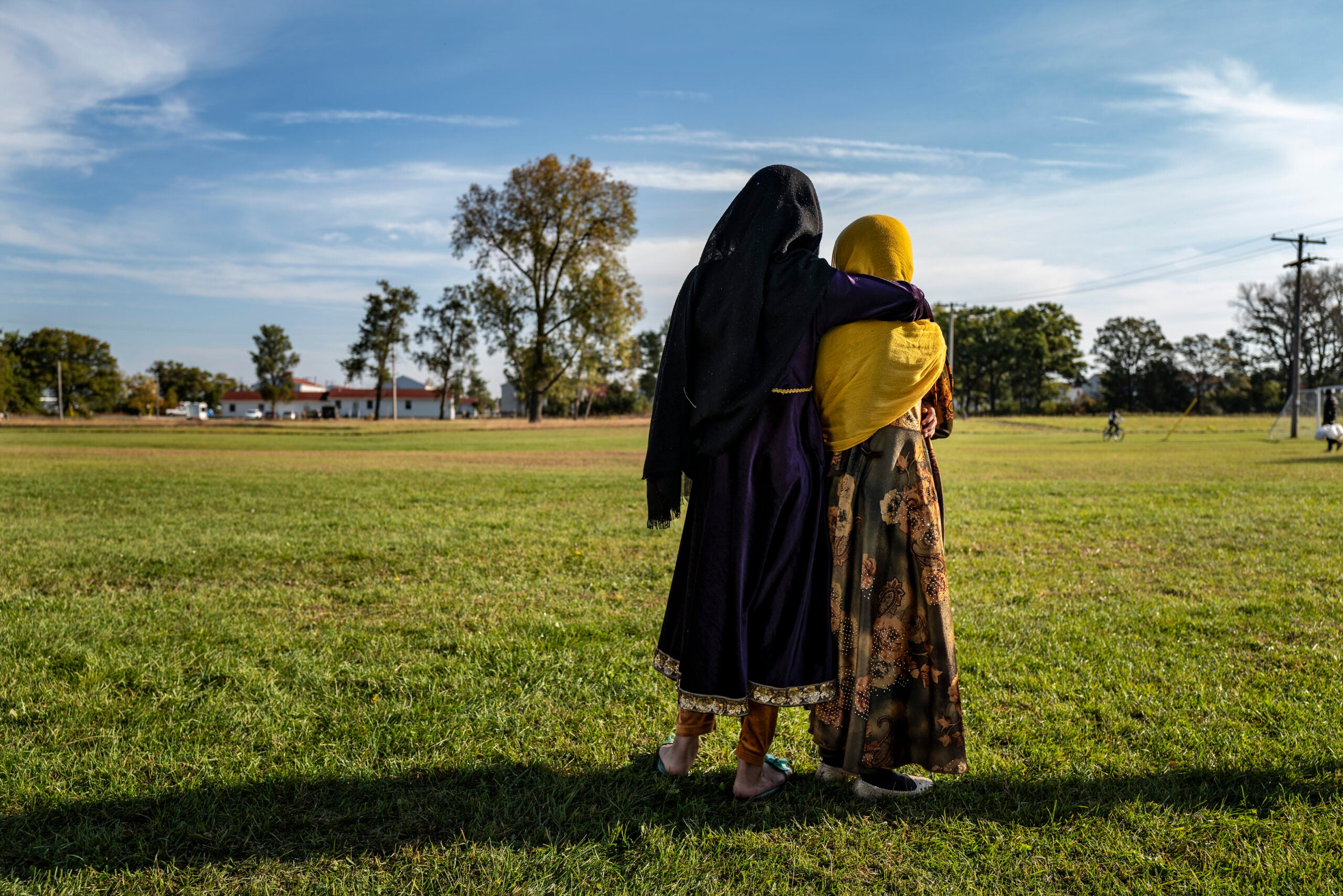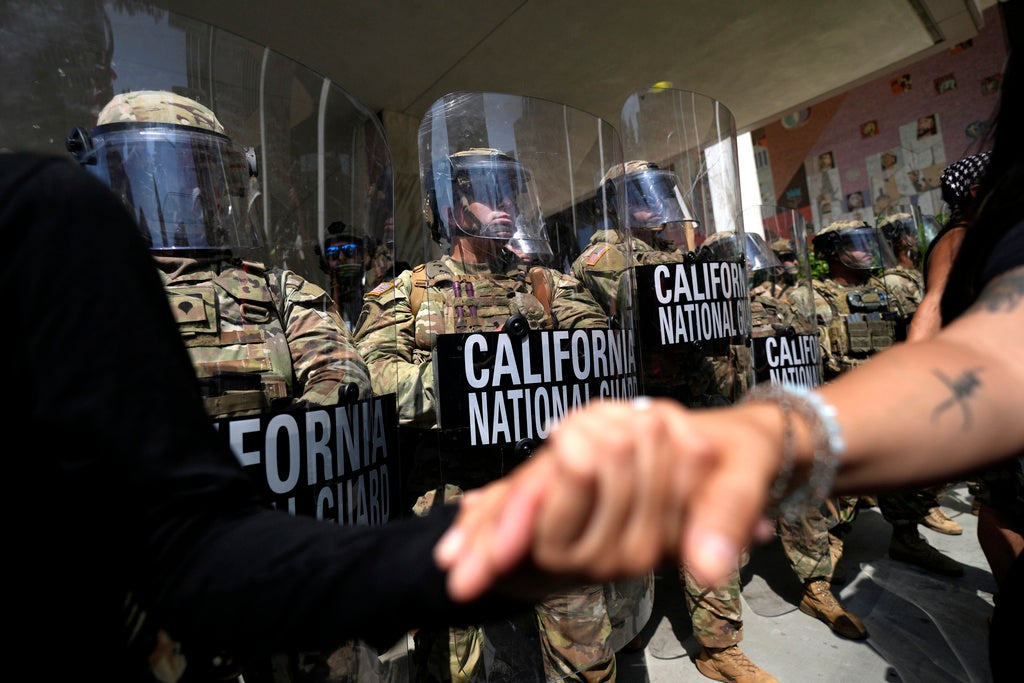The head of the Wisconsin National Guard said it has not seen a decline in soldiers despite the continuation of what Gov. Tony Evers has called “the longest Guard activation in our history.”
During an interview with WPR’s “The Morning Show,” Maj. Gen. Paul Knapp, Adjutant General of the Wisconsin National Guard, said members have been active since the very beginning of the COVID-19 pandemic in Wisconsin. The Guard has administered COVID-19 testing and vaccines around the state, as well as worked at polling places and assisted law enforcement during protests over the last two years.
“It’s been one thing after another,” Knapp said. “And almost all of these things, the commonality between them is that they’re things that we’re asking our service members to do that they really hadn’t trained for in the past.”
News with a little more humanity
WPR’s “Wisconsin Today” newsletter keeps you connected to the state you love without feeling overwhelmed. No paywall. No agenda. No corporate filter.
In January, Evers announced the Guard would help support staff at Wisconsin hospitals and nursing homes around the state by training members to become certified nursing assistants, or CNAs.
Knapp said in the interview on Tuesday that over 200 members are now working as CNAs, as part of the 300 total Guard members supporting the health care system across the state.
“This has allowed Wisconsin to open up hundreds more beds, primarily in long-term care but also in hospital environments as well, that wouldn’t have been open based on the staffing shortages in the healthcare industry,” he said.
Knapp said that the CNA certification, organized by the state Department of Health Services and Madison Area Technical Colleges, is something members will be able to use in their professional lives outside of the Guard.
He said the mission gives those considering a career in health care exposure to the medical field.
Even as Guard members help fill in labor gaps during a time some have dubbed as “The Great Resignation,” Knapp told “The Morning Show” that the Wisconsin National Guard has done well with member retention and recruiting during the pandemic. He said over 600 members are currently mobilized, and it’s been important to Guard leadership that all mobilizations over the last year are voluntary.
Knapp said in the interview that he thinks the patriotism and willingness to serve during times of national crisis has helped.
“After 9/11, recruiting actually went up across the military services and we’re seeing something about the same (now). It’s not going up at the same rate, but it isn’t going down,” he said. “I think folks considering joining the Wisconsin National Guard or those who are already in just really want to be a part of something bigger than themselves. And helping the state with the pandemic has been a great experience for most of the soldiers and airmen involved.”
Knapp said that having a local deployment is an unusual opportunity for Guard members, who are more used to serving overseas. He said many of the soldiers who have served have also been younger members new to the Guard and have never been deployed.
The Wisconsin National Guard does have some members currently serving in Eastern European countries like Poland, Romania and Lithuania. Knapp told “The Morning Show” that the state did have some members in Ukraine, but they were recently pulled back with the potential for a Russian military invasion.
“It does affect us. I can’t speculate on how it’s going to affect us as a National Guard. As of right now, we don’t have any additional orders to provide more soldiers or airmen to that region,” Knapp said.
As the unprecedented mobilization of Guard members continues both at home and abroad, Knapp said that the state is mindful of the toll the last two years have taken on its members. He’s hopeful that a new Comprehensive Wellness Office created by Gov. Evers earlier this year will help Guard members better balance their military career, civilian career and personal life. Evers announced in his annual State of the State address in January that the Guard would receive $5 million of federal pandemic recovery funding to start the office, which Knapp said will include six to 10 staff members.
“(The program) focuses on five pillars — the physical, mental, spiritual, social and financial pillars of our lives — and the need to keep them in balance,” Knapp said in the interview. “One of the things I have struggled with, or that we struggle with in the military, is to get people to fess up to, to admit that they need help and one of those areas. This program really focuses on getting education in all those areas, and then also educating everyone on where to go.”
He said previous wellness trainings had limited availability and the new office will open up education opportunities across the agency.
Wisconsin Public Radio, © Copyright 2025, Board of Regents of the University of Wisconsin System and Wisconsin Educational Communications Board.






